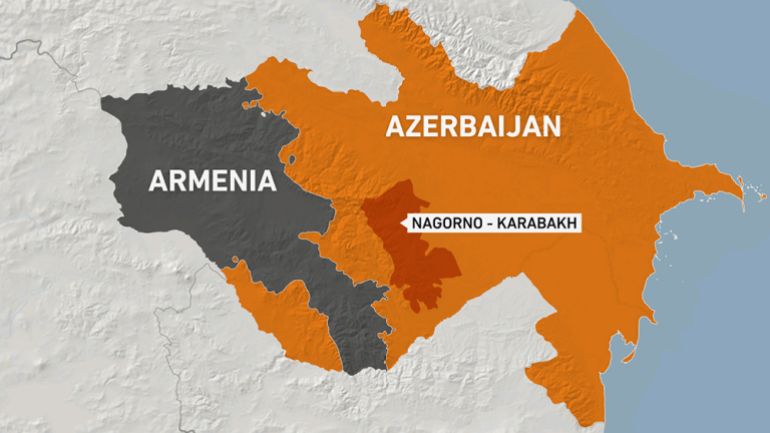Trump to Facilitate Peace Talks Between Armenia and Azerbaijan Leaders.

Armenia and Azerbaijan’s longstanding conflict continues to captivate international attention, particularly as the leaders of both nations prepare for peace talks at the White House later this week. In a significant development, United States President Donald Trump is set to host Armenian Prime Minister Nikol Pashinyan and Azerbaijani President Ilham Aliyev in a bid to foster dialogue and explore a potential framework for a peace agreement. This meeting comes on the heels of discussions held in Abu Dhabi, United Arab Emirates, where hopes for a tangible breakthrough were not realized.
The sociopolitical rift between Armenia and Azerbaijan has persisted since the late 1980s, primarily revolving around the contested territory of Nagorno-Karabakh. Following the dissolution of the Russian Empire in 1917, the region emerged as a focal point of contention, with a predominantly ethnic Armenian population claiming historical ties to the area. However, the landscape shifted significantly when Azerbaijan regained control of Nagorno-Karabakh in September 2023, resulting in a mass exodus of approximately 100,000 ethnic Armenians fleeing to Armenia in the aftermath.
In response to these developments, Armenia has initiated a case before the International Court of Justice (ICJ), alleging that Azerbaijan has taken measures that compromise the cultural heritage of ethnic Armenians in the region. Meanwhile, Azerbaijan has expressed its commitment to ensuring the safety and security of all residents, encompassing diverse national and ethnic backgrounds. The Azerbaijani government has asserted that it did not forcibly displace ethnic Armenians, emphasizing its adherence to principles of inclusivity and coexistence.
The relationship between these two nations has often been framed within the context of religion, as Azerbaijan’s majority Muslim population and Armenia’s predominantly Christian demographic examine their historical narratives. Notably, Azerbaijan has highlighted its own historical ties to the territory, contending that earlier waves of ethnic Armenians also contributed to the displacement of Azerbaijanis during the 1990s.
During the recent talks in Abu Dhabi, Pashinyan and Aliyev reached a consensus to persist in bilateral negotiations, underscoring the importance of confidence-building measures between their countries. Despite the lack of concrete outcomes from the meeting, both leaders remain committed to diplomacy and dialogue as pathways to resolving their differences.
As the world watches closely, the upcoming dialogue in Washington represents another critical juncture in the pursuit of peace in the South Caucasus. The commitment of all parties to engage in constructive dialogue reflects a broader aspiration for stability and reconciliation in the region, recognizing the potential for harmonious coexistence amid historical grievances.
#PoliticsNews #MiddleEastNews






